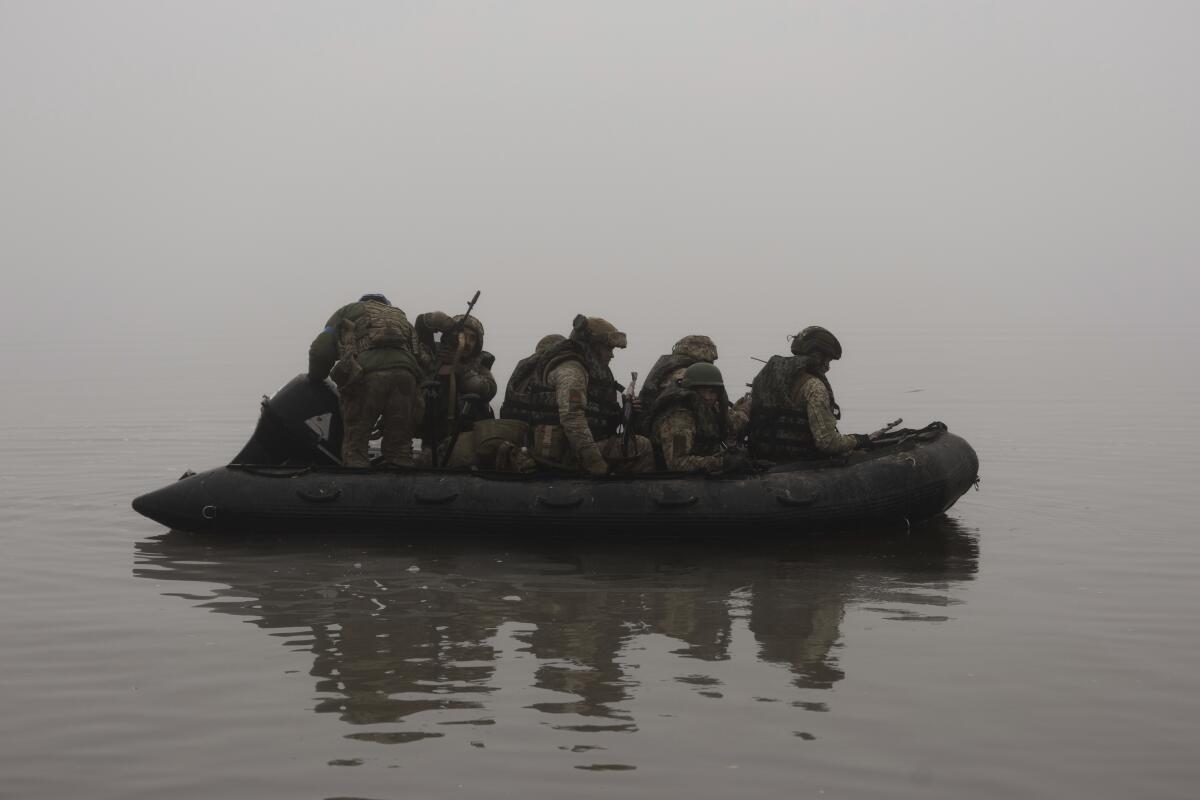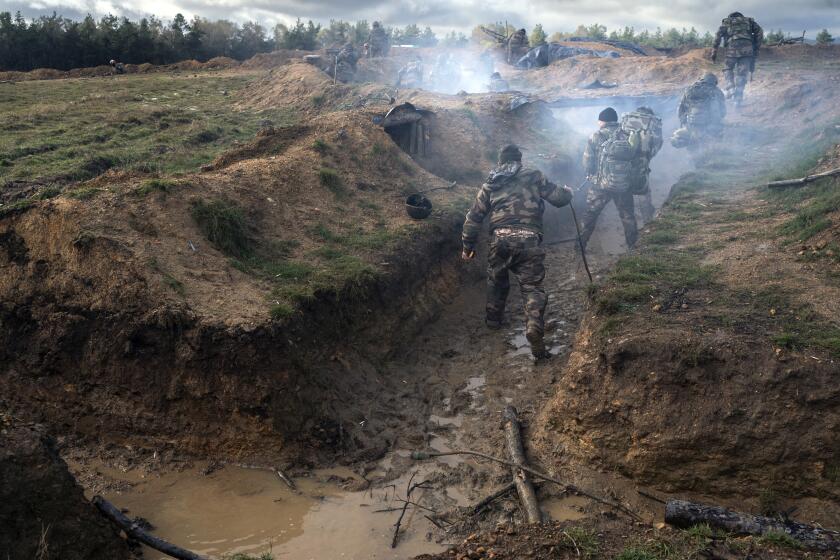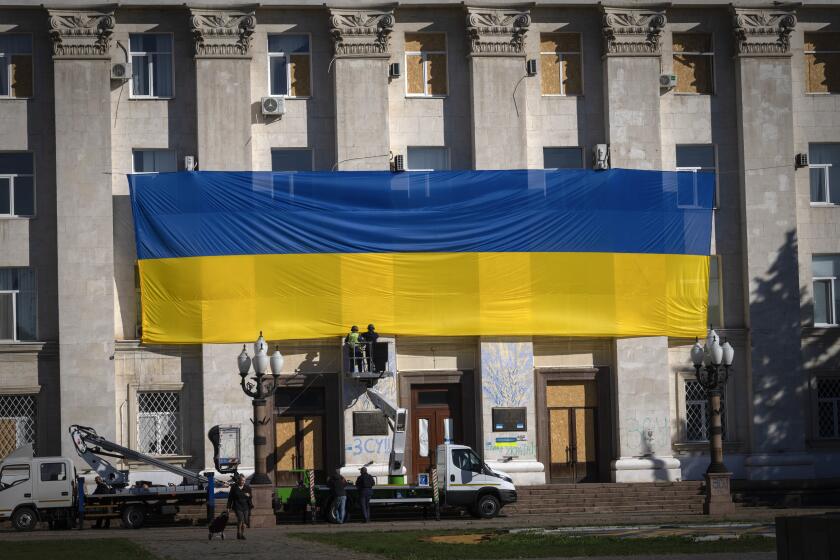Ukraine says it’s gained a foothold on eastern bank of Dnipro River near Kherson

- Share via
KYIV, Ukraine — A top Ukrainian official said Ukrainian troops have established a beachhead on the eastern bank of the Dnipro River in the Kherson region, an important advance in bridging one of Russia’s most significant strategic barriers in the war.
Andriy Yermak, head of the president’s office, provided no details but confirmed the development, which has been widely discussed in military forums over the last month.
“Against all odds, Ukraine’s defense forces have gained a foothold” on the eastern bank of the river, Yermak told the Hudson
Institute, a conservative Washington think tank, in a speech Monday.
Ever since Russian forces left the city of Kherson and the territory around it in November 2022, the only area they controlled on the west bank of the Dnipro, the river became a natural dividing line along the southern battlefront, preventing Ukrainian troops from advancing farther into the Kherson region and toward Russian-annexed Crimea.
The barrier also allowed Russia to concentrate more troops in the heavily mined and fortified Zaporizhzhia region and eastern Ukraine.
Since the summer, Ukrainian forces have crossed the Dnipro in small groups to create a foothold near the Kherson bridge and more recently sought to expand their presence in nearby villages on the east bank, including Krynky.
Combat training programs provided by Ukraine’s allies are hitting major milestones even as global attention shifts to the war in the Middle East.
The Washington-based Institute for the Study of War said Yermak’s comments confirmed its own assessments over the last month that Ukraine was conducting larger-than-usual ground operations on the eastern bank of the river and appeared to be holding its positions and supplying troops in the Russian-controlled Kherson region.
Satellite imagery from Monday showed forces advancing on Krynky, one of the areas on the eastern bank of the Dnipro about 20 miles northeast of the city of Kherson, the institute said.
Russian military bloggers have reported intense fighting near Krynky.
The Moscow-appointed governor for the Russian-occupied part of the Kherson region, Vladimir Saldo, said Ukrainian forces lost up to two battalions crossing the Dnipro and trying to maintain their foothold on the east bank.
One year since Ukraine retook the city of Kherson from occupying Russian forces, residents have grown accustomed to the sounds of the bombs reminding them that the war is far from over.
On his Telegram channel, he said that Ukrainian forces holed up in Krynky were facing a “fiery hell” of intense bombardment and were being destroyed “on a large scale.”
He said that the Russian soldiers were surprised that “the Ukrainian command doesn’t care about personnel lives, sending dozens and hundreds to their death.”
The Ukrainian forces have long established positions in several areas on the eastern bank of the Dnipro and sought to expand them, using boats to ferry supplies.
Ukraine lost control over almost the entire Kherson region, including the city of Kherson, in March 2022, right after the full-scale invasion started.
European Union nations acknowledge that they risk failing to provide Ukraine with the ammunition they pledged to help it fight Russia’s invasion.
Russian troops advanced from the Crimean peninsula, which Moscow illegally annexed from Ukraine in 2014, facing almost no resistance, even though the Ukraine border was supposed to be heavily guarded.
Ukraine recently marked the anniversary of retaking the city of Kherson.
Crossing the Dnipro could allow Ukraine to outflank Russia without having to break through the heavily mined and fortified front line in the Zaporizhzhia region.
It would also provide the most direct land route to Crimea, where Armiansk, one of the two gateways to the peninsula, lies about 50 miles to the south without any significant fortifications in the way.
More to Read
Sign up for Essential California
The most important California stories and recommendations in your inbox every morning.
You may occasionally receive promotional content from the Los Angeles Times.












